Related Research Articles

Claude Piron, also known by the pseudonym Johán Valano, was a Swiss psychologist, Esperantist, translator, and writer. He worked as a translator for the United Nations from 1956 to 1961 and then for the World Health Organization.
A chief executive officer (CEO) is the highest officer charged with the management of an organization – especially a company or nonprofit institution.

Paranoia is a dystopian science-fiction tabletop role-playing game originally designed and written by Greg Costikyan, Dan Gelber, and Eric Goldberg, and first published in 1984 by West End Games. Since 2004 the game has been published under license by Mongoose Publishing. The game won the Origins Award for Best Roleplaying Rules of 1984 and was inducted into the Origins Awards Hall of Fame in 2007. Paranoia is notable among tabletop games for being more competitive than co-operative, with players encouraged to betray one another for their own interests, as well as for keeping a light-hearted, tongue in cheek tone despite its dystopian setting.
The chief risk officer (CRO), chief risk management officer (CRMO), or chief risk and compliance officer (CRCO) of a firm or corporation is the executive accountable for enabling the efficient and effective governance of significant risks, and related opportunities, to a business and its various segments. Risks are commonly categorized as strategic, reputational, operational, financial, or compliance-related. CROs are accountable to the Executive Committee and The Board for enabling the business to balance risk and reward. In more complex organizations, they are generally responsible for coordinating the organization's Enterprise Risk Management (ERM) approach. The CRO is responsible for assessing and mitigating significant competitive, regulatory, and technological threats to a firm's capital and earnings. The CRO roles and responsibilities vary depending on the size of the organization and industry. The CRO works to ensure that the firm is compliant with government regulations, such as Sarbanes–Oxley, and reviews factors that could negatively affect investments. Typically, the CRO is responsible for the firm's risk management operations, including managing, identifying, evaluating, reporting and overseeing the firm's risks externally and internally to the organization and works diligently with senior management such as chief executive officer and chief financial officer.
Happiness is an emotional state characterized by feelings of enjoyment, pleasure, and satisfaction.

"Tout près du bonheur" is a duet between Marc Dupré and Celine Dion, released as a music download on 11 April 2006 in Quebec, Canada. It is the fourth single from Dupré's debut album Refaire le monde, released on 18 October 2005.

Marcel L'Herbier was a French filmmaker who achieved prominence as an avant-garde theorist and imaginative practitioner with a series of silent films in the 1920s. His career as a director continued until the 1950s and he made more than 40 feature films in total. During the 1950s and 1960s, he worked on cultural programmes for French television. He also fulfilled many administrative roles in the French film industry, and he was the founder and the first President of the French film school Institut des hautes études cinématographiques (IDHEC).
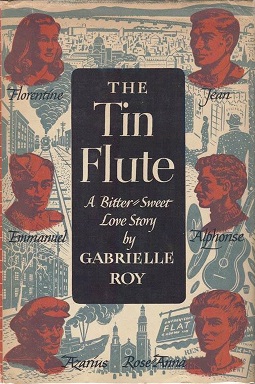
The Tin Flute is the first novel by Canadian author Gabrielle Roy and a classic of Canadian fiction. Imbued with Roy's brand of compassion and understanding, this story focuses on a family in the Saint-Henri slums of Montreal, its struggles to overcome poverty and ignorance, and its search for love.

Raymond Berthiaume was a Canadian jazz singer, musician, producer and composer from Quebec, Canada.
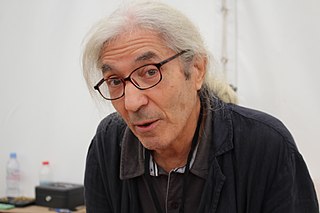
Boualem Sansal is an Algerian author. In 2012, he was named winner of the Prix du roman arabe, but the prize money was withdrawn due to Sansal's visit to Israel to speak at the Jerusalem Writers Festival.

Welcome to the Sticks is a 2008 French comedy film directed and co-written by Dany Boon and starring Kad Merad and Boon himself. The film was the highest-grossing French film of all time at the box office in France until it was surpassed by The Intouchables (2011).
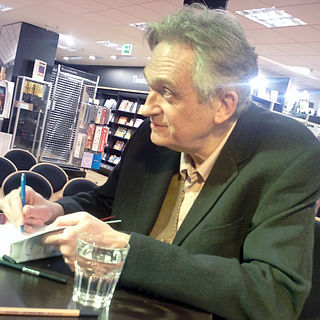
François Lelord is a French psychiatrist and author.
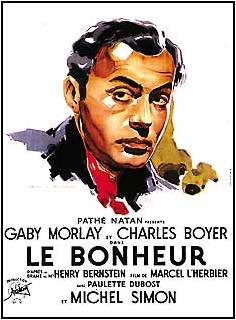
Le Bonheur ("Happiness") is a 1934 French comedy-drama film directed by Marcel L'Herbier. It was adapted from Henri Bernstein's play Le Bonheur, which Bernstein had staged in Paris in March 1933 with Charles Boyer and Michel Simon in leading roles; Boyer and Simon took the same parts in the film.

Paris La Défense Arena is a multi-purpose indoor arena in Nanterre, a western suburb of Paris. Opened in October 2017, it was developed by the rugby union club Racing 92, and replaced Stade Olympique Yves-du-Manoir as their home field. It is one of the two multi-purpose indoor arena to be built in Europe, along with Telenor Arena and is Europe's largest indoor arena. Its naming rights are held by Paris La Défense, the management company of the nearby La Défense business district.

La Maison du Bonheur is a 2006 French comedy film directed by Dany Boon, adapted from the play La Vie de chantier.
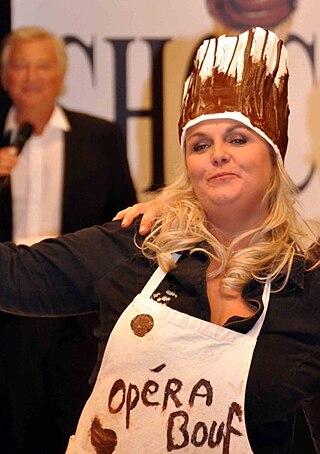
Valérie Damidot is a French television personality best known for hosting the D&CO TV show from 2006 to 2015. It was broadcast once a week on M6, a national channel. Following its success, she has hosted other TV programs which are based on D&CO: Une semaine pour tout changer and D&CO c’est du bonheur.
Positive psychology is defined as a method of building on what is good and what is already working instead of attempting to stimulate improvement by focusing on the weak links in an individual, a group, or in this case, a company. Implementing positive psychology in the workplace means creating an environment that is more enjoyable, productive, and values individual employees. This also means creating a work schedule that does not lead to emotional and physical distress.

Malene Rydahl, born in Aarhus (Denmark), is a former executive in corporate communication and currently a writer, speaker and executive coach specializing in happiness, well-being and management.

Thierry Yves Henri Bolloré is a French businessman, previously CEO of Jaguar Land Rover. He began his career at Michelin, then joined Faurecia in 2005 and Renault in 2012 as Chief Competitive Officer, then was named COO in 2018, before becoming CEO from November 2018 to October 2019.

Happiness Curriculum is an educational program for children studying in nursery to grade eight in schools run by the Government of Delhi since July 2018. The objective is to improve the mental well-being of pupils, and it teaches mindfulness, social-emotional learning, critical thinking, problem solving, and relationship building. Its purpose is to build emotional awareness, to support decision making with that emotional awareness, to equip pupils with the necessary skills and environment to become purpose-driven, and explore a nuanced idea of happiness. The introduction of the curriculum into government schools of Delhi has been called a reformative step towards school education in India.
References
- 1 2 "Down with fun". The Economist. 2010. Retrieved 2023-08-06.
- ↑ Stroobants, Jean-Pierre (30 April 2013). "Le bonheur est dans le ministère". Le Monde.
- ↑ "'Chief happiness officer', responsable du bonheur en entreprise". Le Parisien. 27 January 2017.
- ↑ Thomine, Camille (22 May 2017). "Manageur du bonheur : un métier ou une mode ?". Le Monde.
- ↑ Knowles, Vikki (2015-07-13). "If you're happy and you know it ... become a chief happiness officer". The Guardian. ISSN 0261-3077 . Retrieved 2017-12-20.